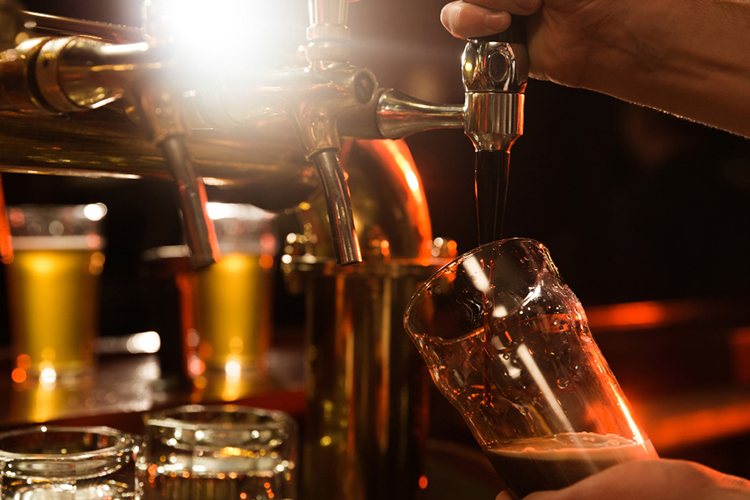California’s Responsible Beverage Service (RBS) training is a comprehensive program designed to educate and certify individuals who serve, sell, or manage the service of alcoholic beverages. The training aims to promote the responsible sale and consumption of alcohol, ensuring the safety of both patrons and the community.

Overview of RBS Training
RBS training in California covers a wide range of topics to equip alcohol servers with the knowledge and skills needed to responsibly handle alcoholic beverages. The primary objectives of the training include:
- Understanding Alcohol Laws: Familiarizing servers with state and local laws related to alcohol service, including legal drinking age, hours of sale, and restrictions on alcohol promotions.
- Identifying Intoxication: Teaching servers how to recognize the signs of intoxication and the potential consequences of over-serving alcohol.
- Checking Identification: Training on the proper methods for verifying the authenticity of identification to prevent underage drinking.
- Preventing Over-Serving: Strategies for managing patrons who are at risk of becoming intoxicated and preventing over-serving.
- Handling Difficult Situations: Techniques for de-escalating conflicts and managing challenging situations involving intoxicated patrons.
Legal Requirements
As of July 1, 2022, California law mandates that all alcohol servers and their managers must complete RBS training and pass an exam to obtain RBS certification. This requirement is part of Assembly Bill 1221, which aims to reduce alcohol-related incidents and improve public safety.
Who Needs to Be Certified?
The RBS certification requirement applies to:
- Bartenders: Individuals who prepare and serve alcoholic beverages directly to customers.
- Servers: Waitstaff who take drink orders and deliver alcoholic beverages to customers.
- Managers: Supervisors and managers who oversee the service of alcohol in establishments.
- Security Personnel: Bouncers and door staff who monitor the entry of patrons and manage crowd control in establishments serving alcohol.
Key Components of the Training
1. Alcohol Laws and Regulations Understanding the legal framework governing alcohol service is crucial. RBS training covers the specific laws applicable in California, including those related to the legal drinking age, hours of operation, and penalties for non-compliance.
2. Recognizing Intoxication The training helps servers identify signs of intoxication, such as slurred speech, impaired coordination, and changes in behavior. Knowing these signs allows servers to intervene before a patron becomes excessively intoxicated.
3. Verifying Identification Proper ID verification is essential to prevent underage drinking. RBS training provides guidance on how to check IDs accurately, identify fake IDs, and handle situations where identification is questionable.
4. Managing Over-Serving Servers learn techniques to manage patrons’ alcohol consumption, such as offering water, food, and non-alcoholic beverages, and how to refuse service politely but firmly when necessary.
5. Conflict Resolution Handling difficult situations involving intoxicated patrons is a critical skill. The training includes strategies for de-escalating conflicts and safely removing problematic patrons from the premises.
Benefits of RBS Training
1. Improved Public Safety RBS training aims to reduce the incidence of alcohol-related accidents and crimes by ensuring that alcohol is served responsibly. This benefits the broader community by promoting safer drinking environments.
2. Legal Compliance Compliance with RBS training requirements helps establishments avoid fines, penalties, and potential legal liabilities. It demonstrates a commitment to upholding the law and maintaining a responsible business.
3. Enhanced Professionalism Certified servers and managers are better equipped to handle the challenges associated with alcohol service. This enhances the professionalism of the staff and improves the overall customer experience.
4. Liability Reduction By training staff to recognize and manage intoxicated patrons, establishments can reduce their risk of liability in the event of an alcohol-related incident. This can also potentially lower insurance costs.
How to Obtain RBS Certification
To obtain RBS certification, individuals must complete an approved RBS training program and pass a final exam. The training is available online, providing flexibility for individuals to complete it at their convenience. Upon passing the exam, participants receive a certification that is valid for three years.
California’s Responsible Beverage Service (RBS) training is an essential program for anyone involved in the service of alcohol. It provides the knowledge and skills needed to serve alcohol responsibly, ensuring compliance with state laws and promoting public safety. By completing RBS training and obtaining certification, servers, bartenders, managers, and security personnel can contribute to creating a safer and more enjoyable environment for all patrons.

